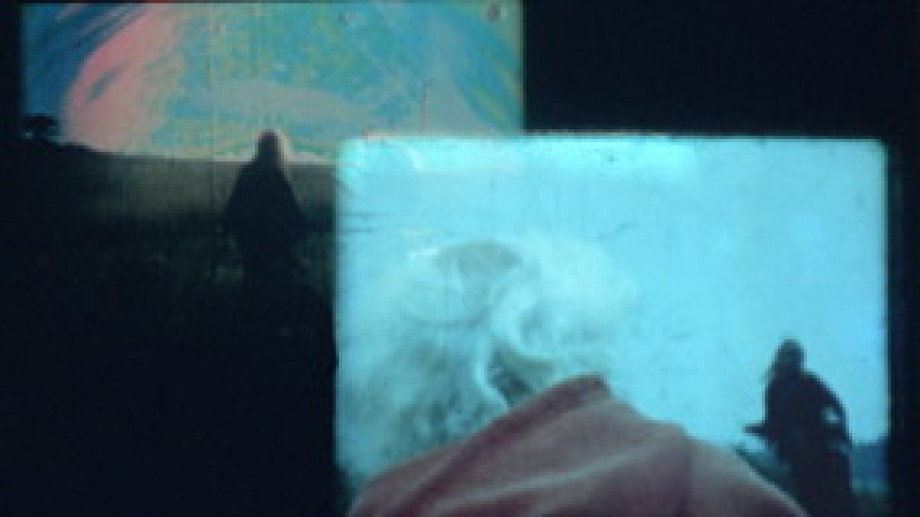
Films: We Can't Go Home Again, directed by Nicholas Ray, and Don't Expect Too Much, directed by Susan Ray
Program: Masterworks (We Can't Go Home Again) and Special Events (Don't Expect Too Much)
Tickets: Oct 2 (We Can't Go Home Again), Oct 3 (Don't Expect Too Much)
Why you should see them:
Now completed and digitally restored, We Can't Go Home Again is a 1973 Nicholas Ray film that remained largely unseen as Ray continued working on it until his death in 1979. This is the North American premiere of its complete, reconstructed version that includes unseen footage provided by the Nicholas Ray Foundation. Made in collaboration with his film students at the Harpur College, this film is an extraordinary synthesis of Ray’s cinematic excellence and his students’ novice sensibilities. A unique combination of fact and fiction starring Ray and his students as fictionalized versions of themselves, this film projects Ray’s personal identity as well as the apprehensions he experienced in the latter years of his controversial life. This experimental masterwork is a visual spectacle as a result of its manipulation of cinematic boundaries through the radical superimposition of materials from multiple cameras and the use of split screens, anticipating the stylistic tactics to emerge in later years.
Also screening at NYFF is Don’t Expect Too Much, a documentary directed by Susan Ray, on the making of this unprecedented film. Contrary to its modest title, this documentary is as much a film about the relationship that Ray shared with his students as it is an exploration of his vision for cinema itself.
Filmmaker backgrounds:
An American director best known for renowned films such as Rebel Without a Cause and Johnny Guitar, Nicholas Ray enjoyed a successful career in the 1950s. Highly influential in his prime, Godard once wrote of him, “Cinema is Nicholas Ray”. Today his legacy is carried on at the Nicholas Ray Foundation, helmed by his widow Susan Ray.
Track Record:
The first edit of We Can’t Go Home Again premiered out of competition at the 1973 Cannes Film Festival. At the centennial of Ray’s birth in 2011, the digitally restored version of his last film has generated widespread interest. After a screening at the 2011 Venice Film Festival, it will be showcased in North America for the first time at NYFF, accompanied by Susan Ray's documentary about its making, Don’t Expect Too Much.
What the critics are saying:
“As the singular auteur at the helm, Ray invests a lifetime worth of hopes, fears, dreams, nightmares, and neuroses into We Can’t Go Home Again. His supreme desire to prove his premonition wrong permeates every frame with equal parts anxiety and excitement. To those familiar with his work, its hard not to view this, his last (near) completed feature film, as the apotheosis of his career, which is not to suggest that the movie is necessarily his masterpiece, but that it just might be the most direct, unfiltered expression of 'Nicholas Ray' on film.” Cullen Gallagher, Not Coming to a Theater Near You
“He tinkered with the film for years, and the 1976 date commonly assigned to it refers to a second unfinished version, which, lamentably, is unavailable. It’s upsetting in many ways, but as a document of its time there’s nothing remotely like it.” – Jonathan Rosenbaum, Sight and Sound
What the NYFF programmers say:
“We Can’t Go Home Again is a film that Nicolas Ray, the great Hollywood filmmaker who directed Rebel Without a Cause, In a Lonely Place, On Dangerous Ground and so many other movies, which he started making in the early 1970s when he took a teaching job at Harpur College in Binghamton. It was an experimental film that he made in very tight collaboration with students using cutting edge video technology, including equipment donated to him by Nam June Paik, the great Korean video artist. Over time, it grew into a kind of magnum opus of all his thoughts about the 60s counterculture, Vietnam, and his own filmmaking career, which he rushed into an unfinished version for a screening at the 1973 Cannes Film Festival and continued to work on after that for several more years until he died of cancer in 1979. The version that will be shown at the New York Film Festival is a new restoration of the film, supervised by Ray’s widow Susan, that is perhaps the most complete version of the film that will ever be shown. We’ll also be showing a documentary Susan has made about the sort of long, tortured history of the project, called Don’t Expect Too Much.” – Scott Foundas, Associate Program Director



